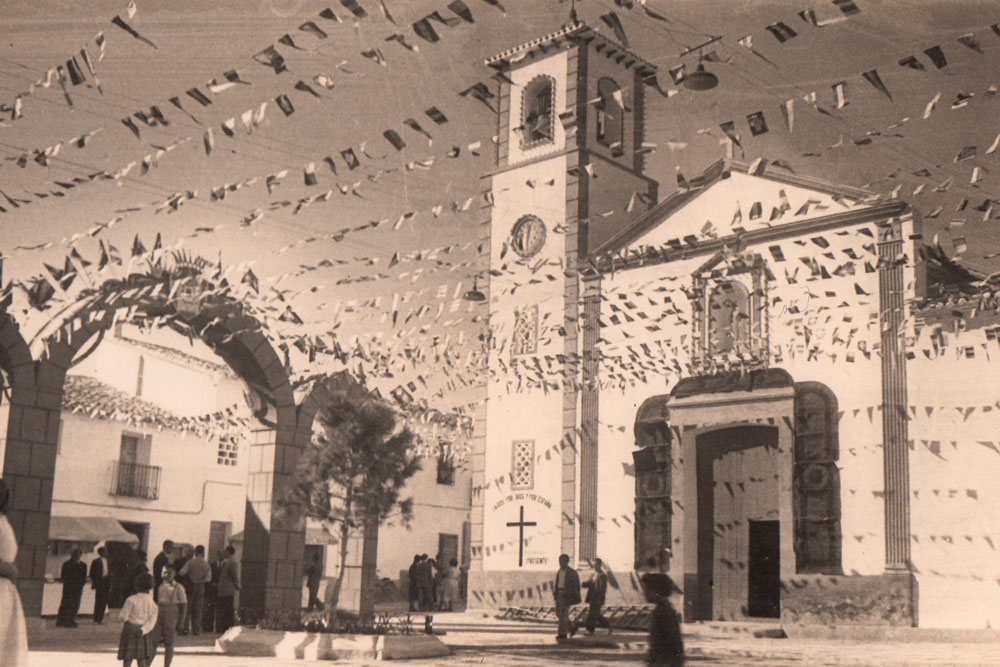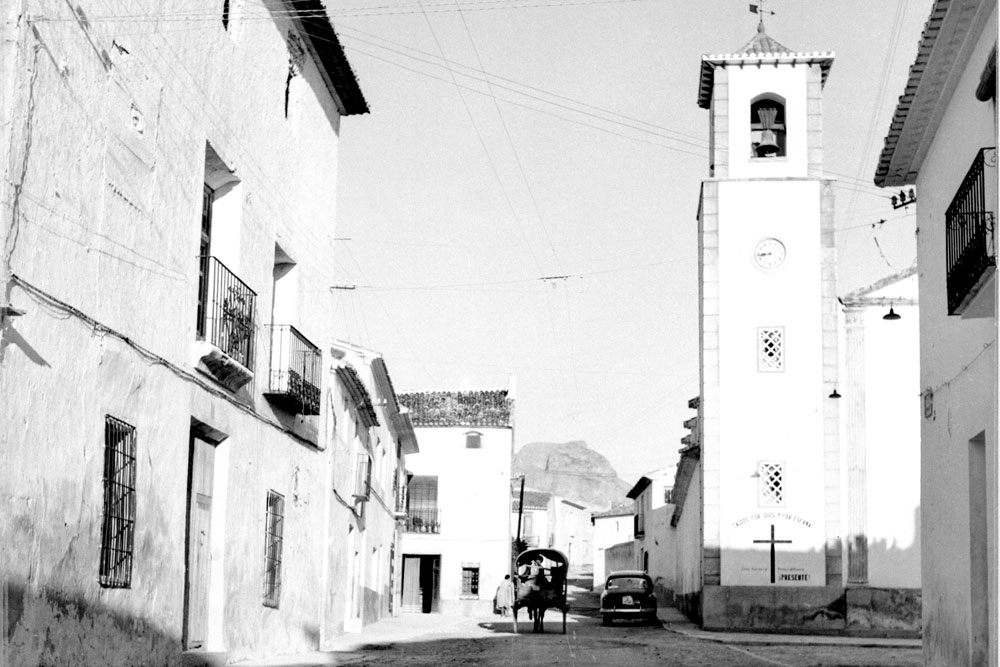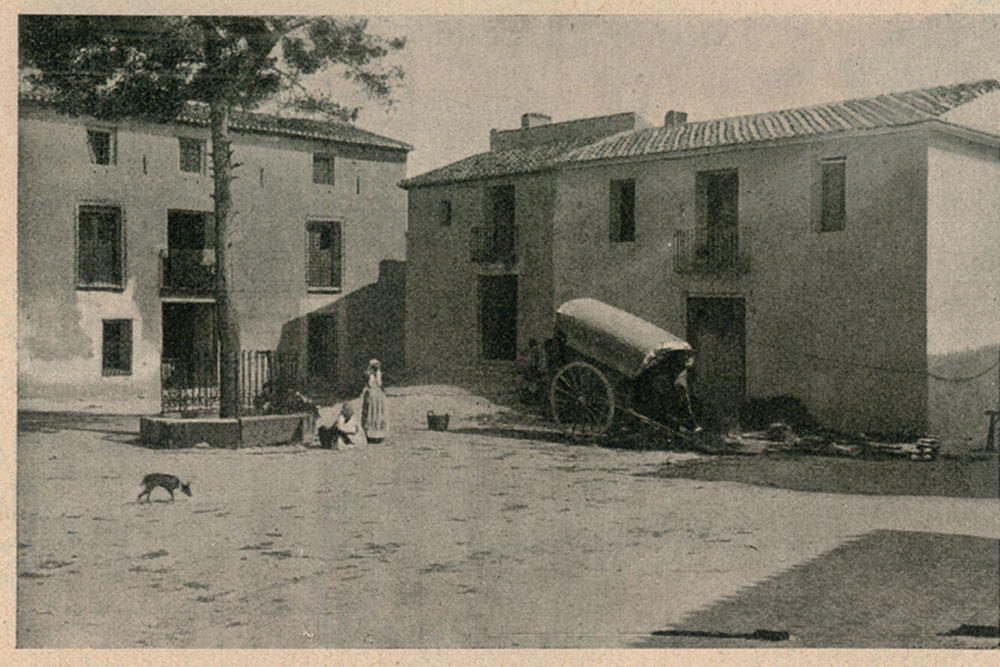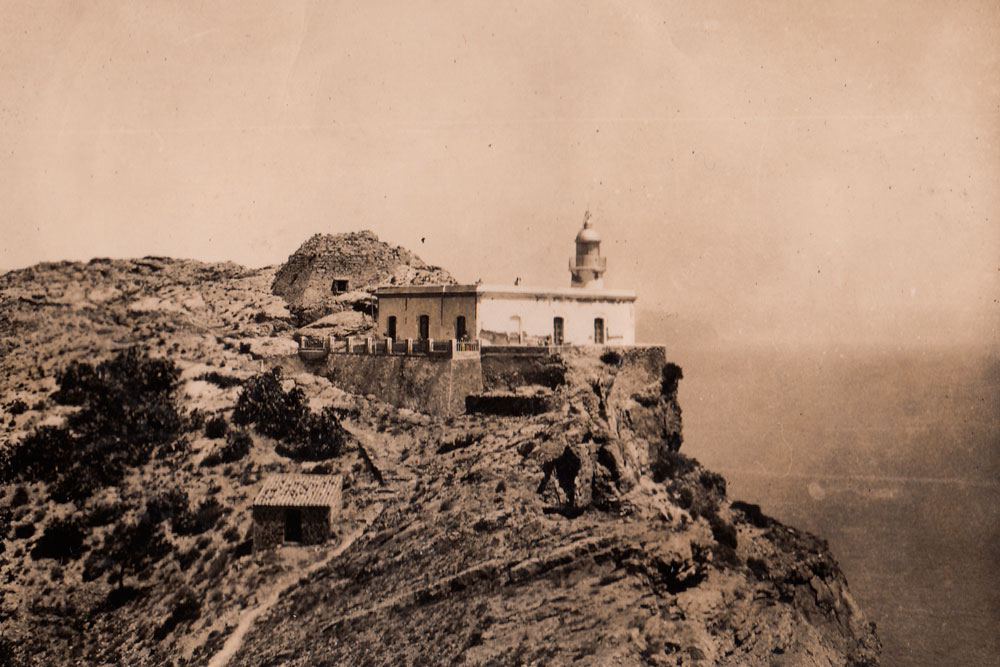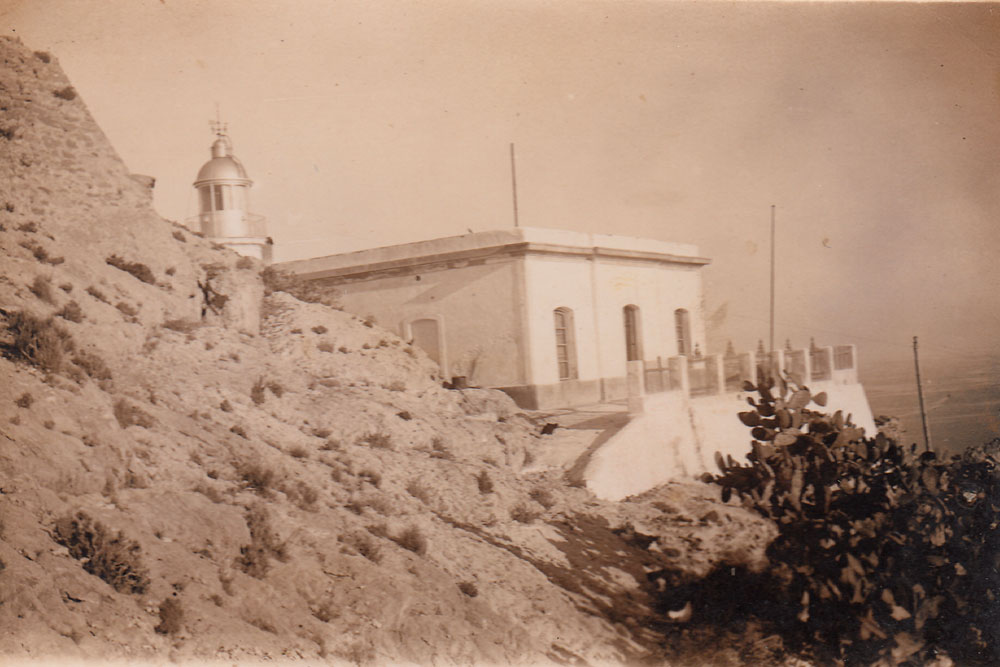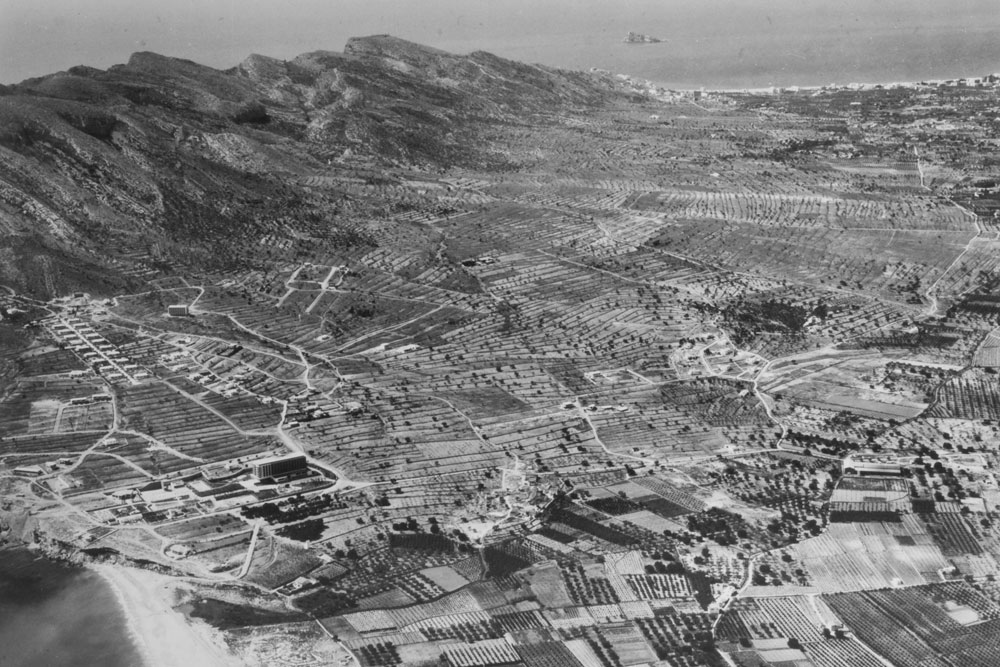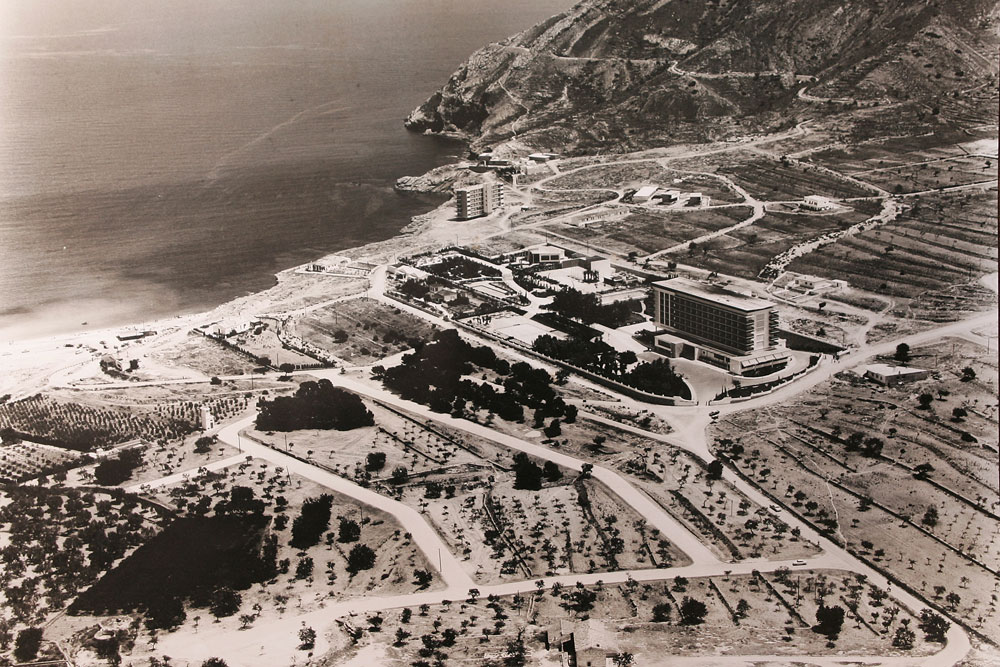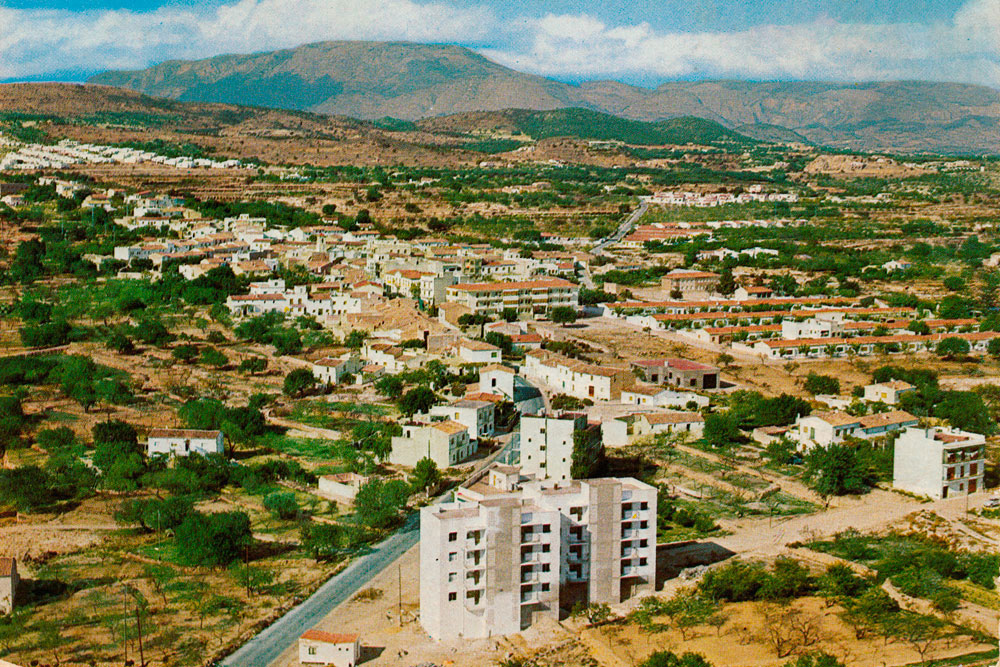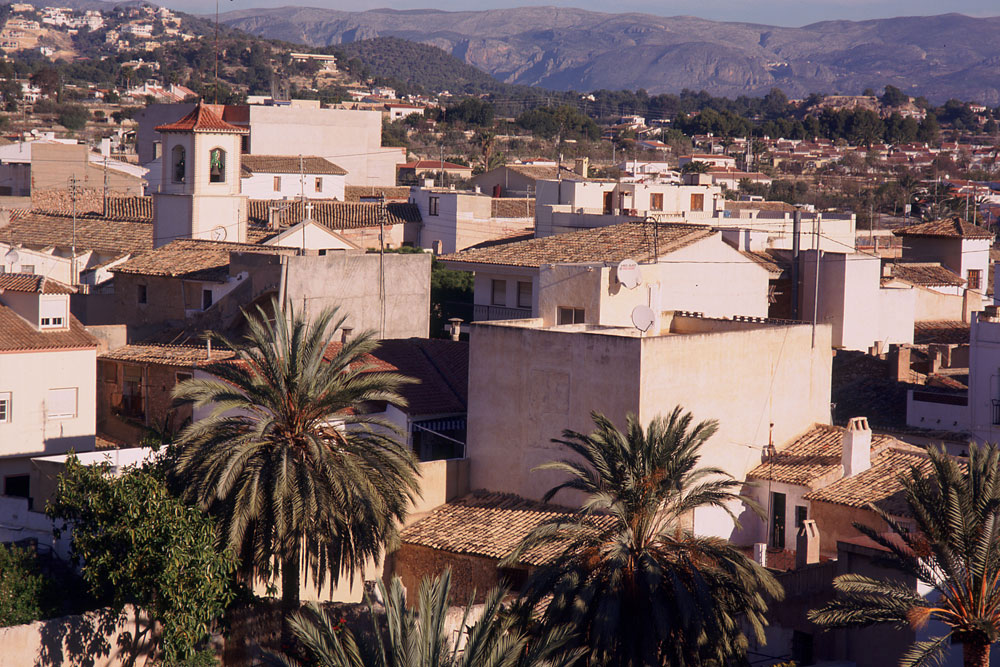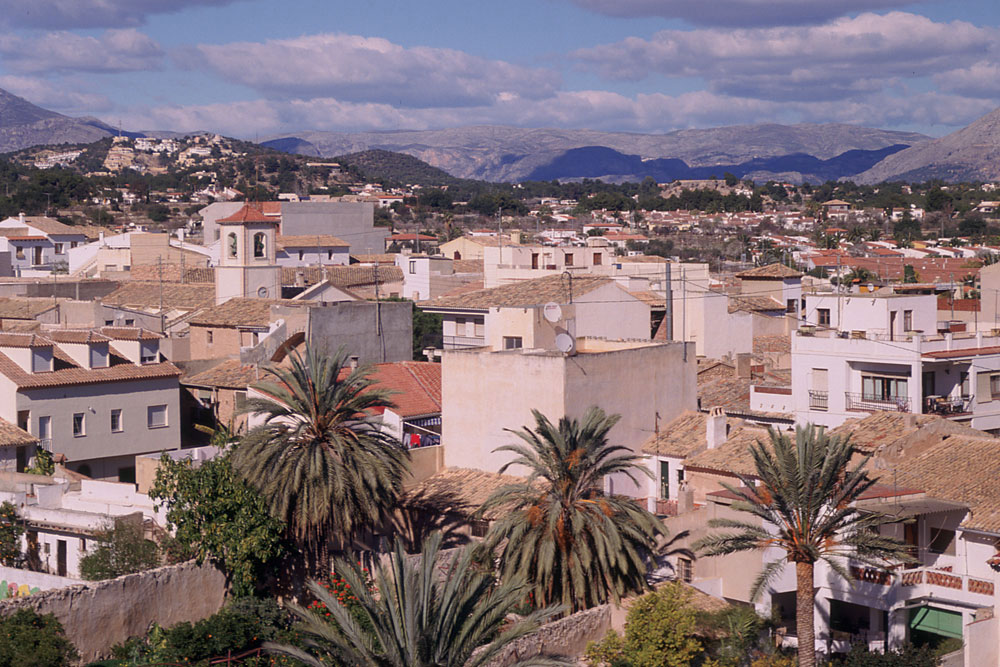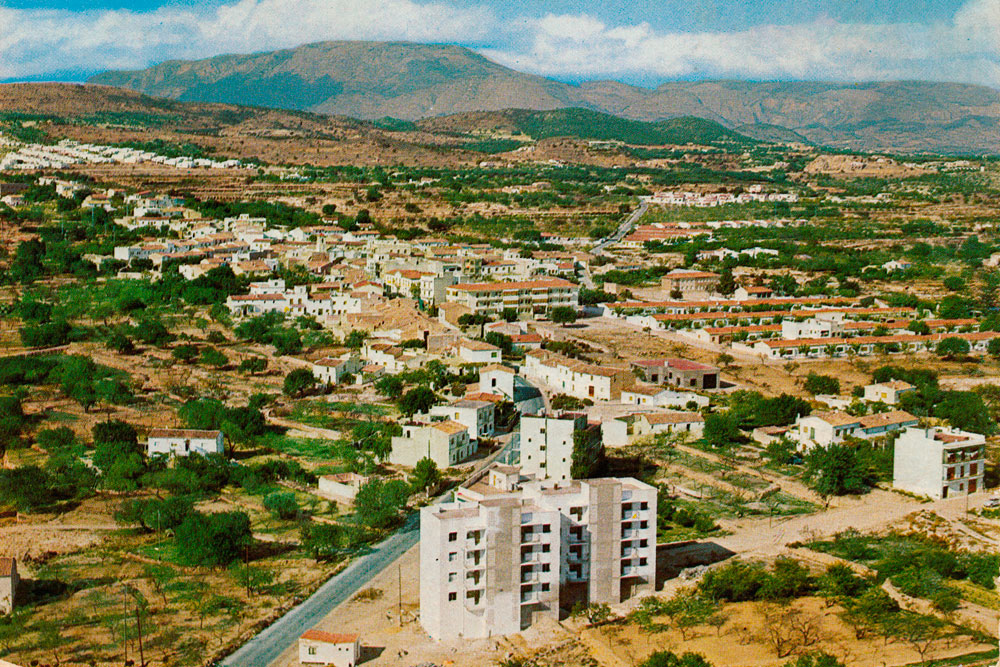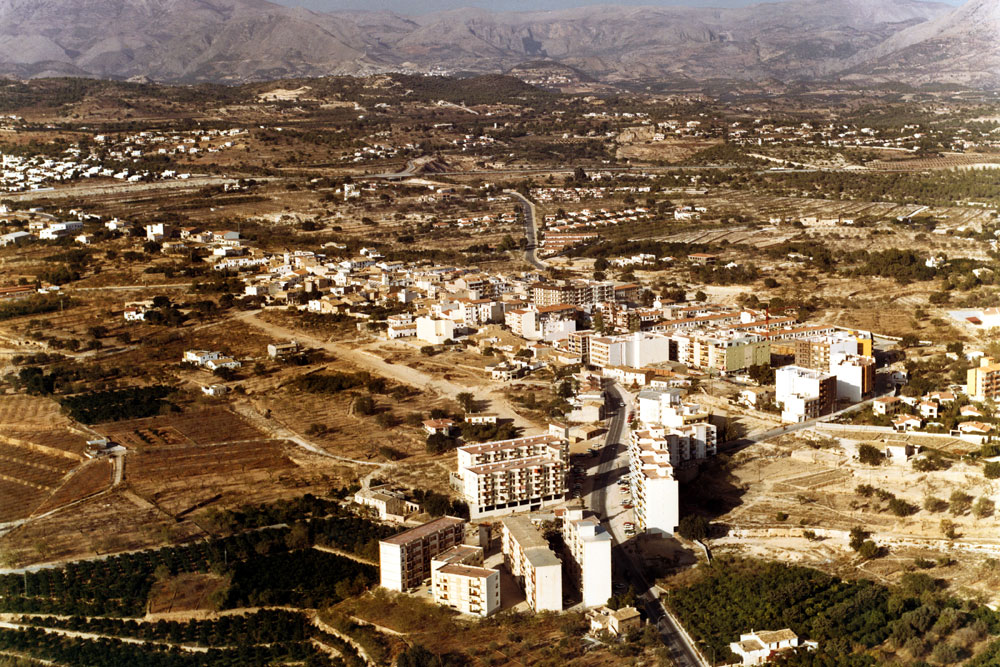The origin of l´Alfàs el Pi is closely tied to agriculture and water culture. Alfas is an Arabian place name that means fertile or cultivated land. Halfway through the 16th century, our town was a small village called Alfàs del Polop that depended on the Barony of Polop. In those days, the baroness Beatriz Fajardo de Mendoza began building an irrigation system, l´Alfas´ Reg Major, so as to increase the agricultural production of her lands. These irrigation canals, that gathers water from the Ponoig mountain, passes through the towns of Polop, La Nucía, l´Alfàs del Pi and Benidorm. A large number of mills were built along the canal, some of them still standing, as well as fountains and washing sites. This irrigation network, that is still partially working 345 years after its construction, increased agricultural production and population settlement in this area. Finally, in 1836, l´Alfàs gained independence from Polop and changed its name to l´Alfàs del Pi, in honour of the pine tree planted in the town´s main square in 1786 that symbolizes this act of independence.
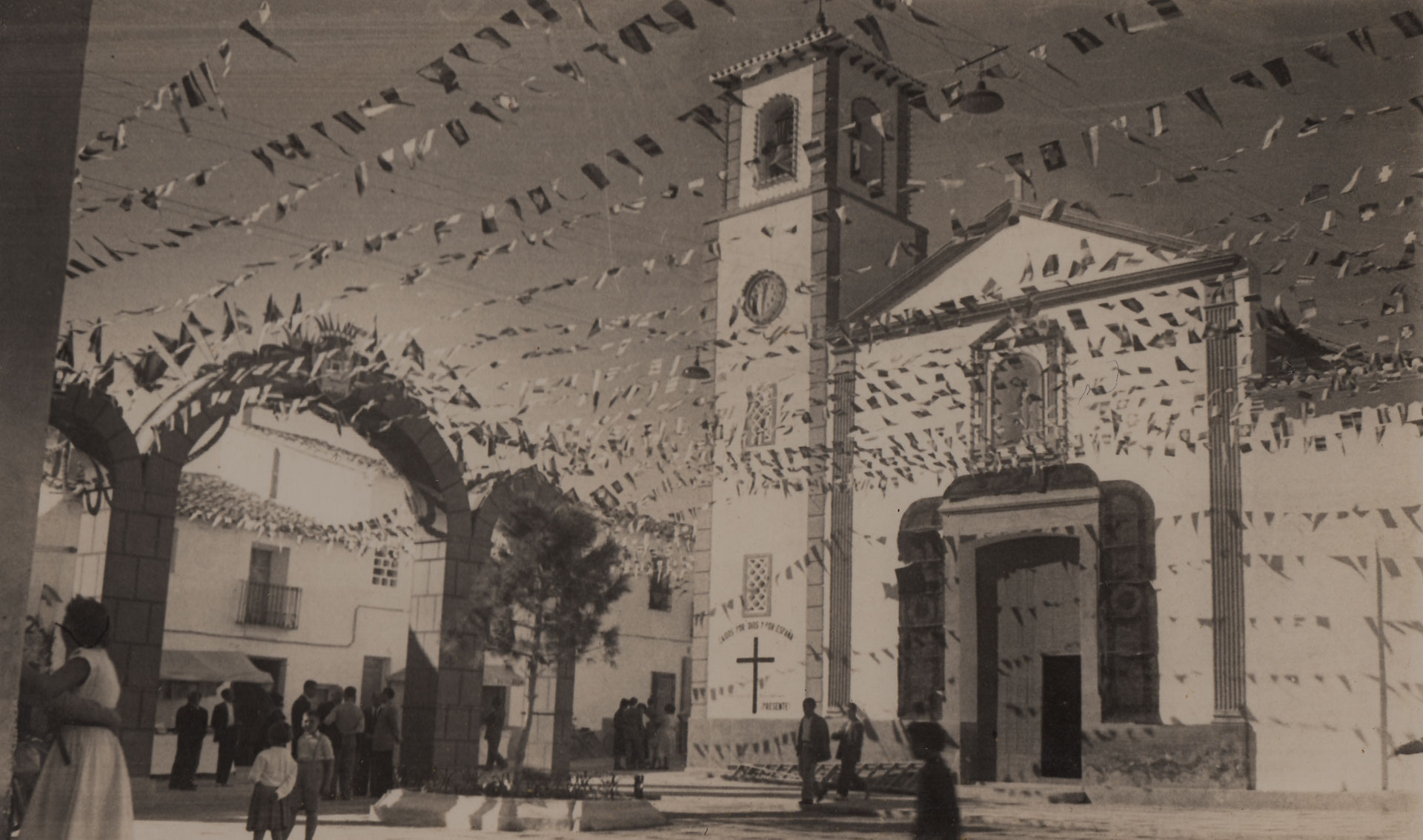
A bit of history
In 1836 the population of l´Alfàs del Pi was of 250 people, now the village has become a town with over 21.000 residents. It is one of the Costa Blanca´s most well known tourist towns with over 90 nationalities coexisting with a perfect international quality of life. Despite this, its town centre still displays certain places that take us back to a small, Mediterranean village whose economy is based on agriculture. The following streets: Baldons, Calvari, el Gall o de Baix, with their narrow pavements and traditional houses, or the Plaza Major main square with the pine tree and San José church, take us back to a period in time where life was organized according to agricultural cycles and time was followed with the ringing of church bells.

